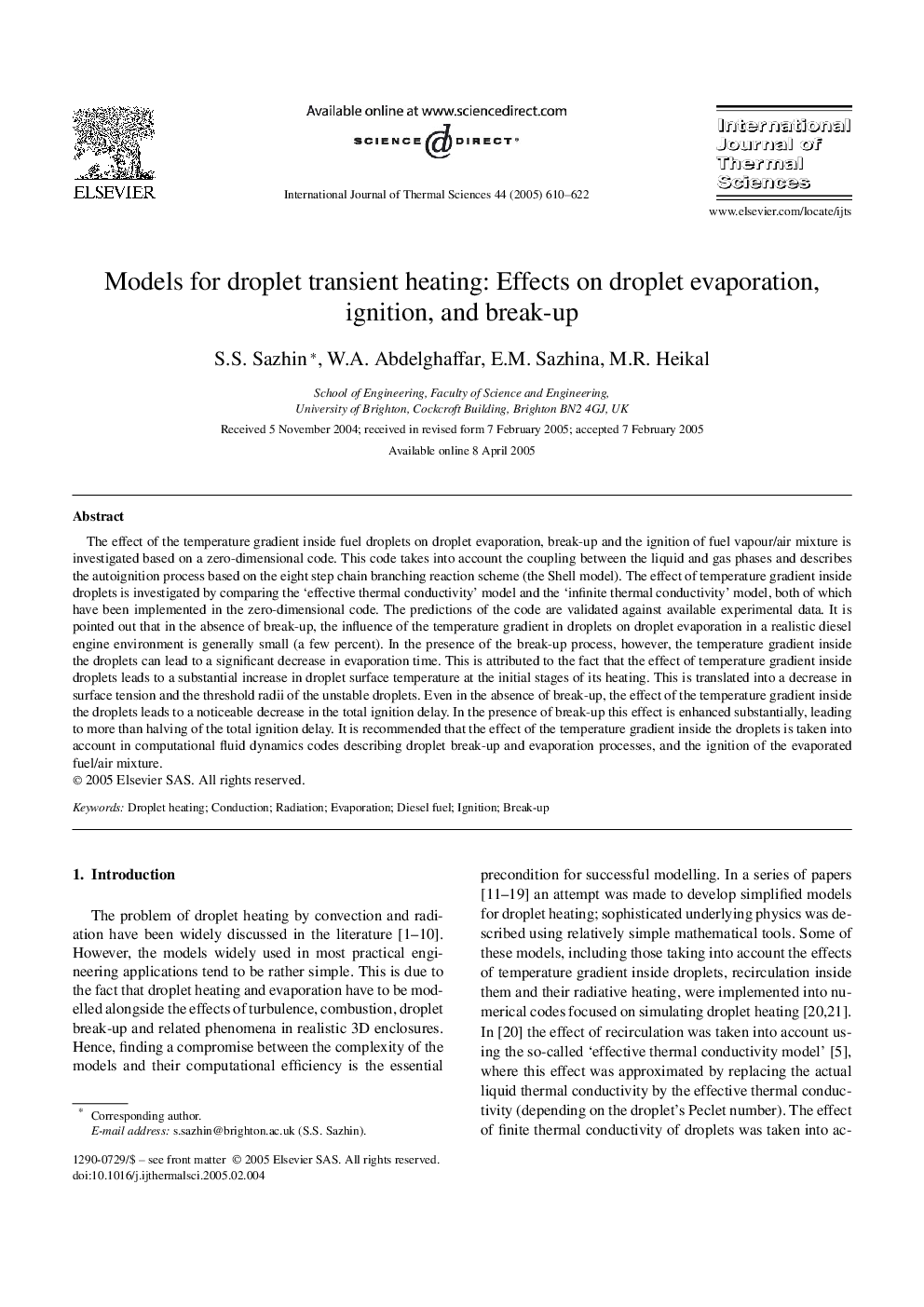| کد مقاله | کد نشریه | سال انتشار | مقاله انگلیسی | نسخه تمام متن |
|---|---|---|---|---|
| 9692855 | 1458849 | 2005 | 13 صفحه PDF | دانلود رایگان |
عنوان انگلیسی مقاله ISI
Models for droplet transient heating: Effects on droplet evaporation, ignition, and break-up
دانلود مقاله + سفارش ترجمه
دانلود مقاله ISI انگلیسی
رایگان برای ایرانیان
کلمات کلیدی
موضوعات مرتبط
مهندسی و علوم پایه
مهندسی شیمی
جریان سیال و فرایندهای انتقال
پیش نمایش صفحه اول مقاله

چکیده انگلیسی
The effect of the temperature gradient inside fuel droplets on droplet evaporation, break-up and the ignition of fuel vapour/air mixture is investigated based on a zero-dimensional code. This code takes into account the coupling between the liquid and gas phases and describes the autoignition process based on the eight step chain branching reaction scheme (the Shell model). The effect of temperature gradient inside droplets is investigated by comparing the 'effective thermal conductivity' model and the 'infinite thermal conductivity' model, both of which have been implemented in the zero-dimensional code. The predictions of the code are validated against available experimental data. It is pointed out that in the absence of break-up, the influence of the temperature gradient in droplets on droplet evaporation in a realistic diesel engine environment is generally small (a few percent). In the presence of the break-up process, however, the temperature gradient inside the droplets can lead to a significant decrease in evaporation time. This is attributed to the fact that the effect of temperature gradient inside droplets leads to a substantial increase in droplet surface temperature at the initial stages of its heating. This is translated into a decrease in surface tension and the threshold radii of the unstable droplets. Even in the absence of break-up, the effect of the temperature gradient inside the droplets leads to a noticeable decrease in the total ignition delay. In the presence of break-up this effect is enhanced substantially, leading to more than halving of the total ignition delay. It is recommended that the effect of the temperature gradient inside the droplets is taken into account in computational fluid dynamics codes describing droplet break-up and evaporation processes, and the ignition of the evaporated fuel/air mixture.
ناشر
Database: Elsevier - ScienceDirect (ساینس دایرکت)
Journal: International Journal of Thermal Sciences - Volume 44, Issue 7, July 2005, Pages 610-622
Journal: International Journal of Thermal Sciences - Volume 44, Issue 7, July 2005, Pages 610-622
نویسندگان
S.S. Sazhin, W.A. Abdelghaffar, E.M. Sazhina, M.R. Heikal,